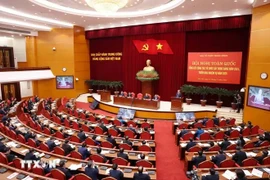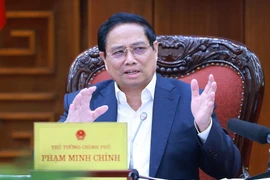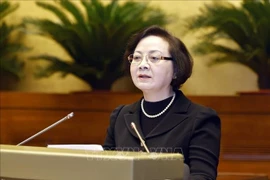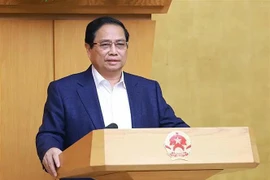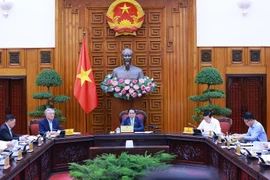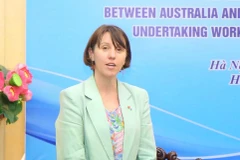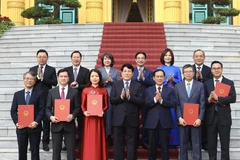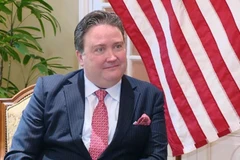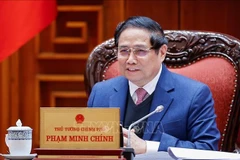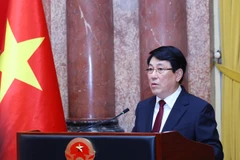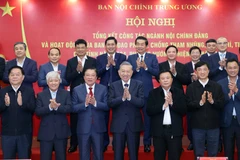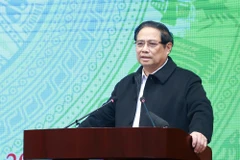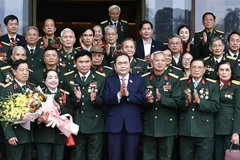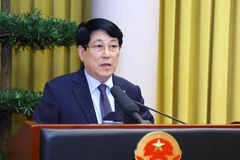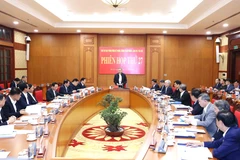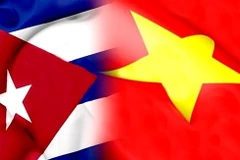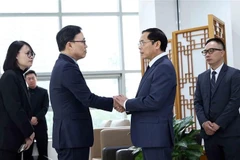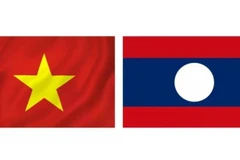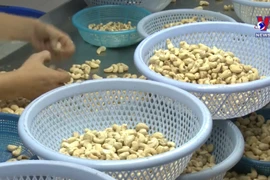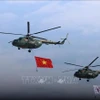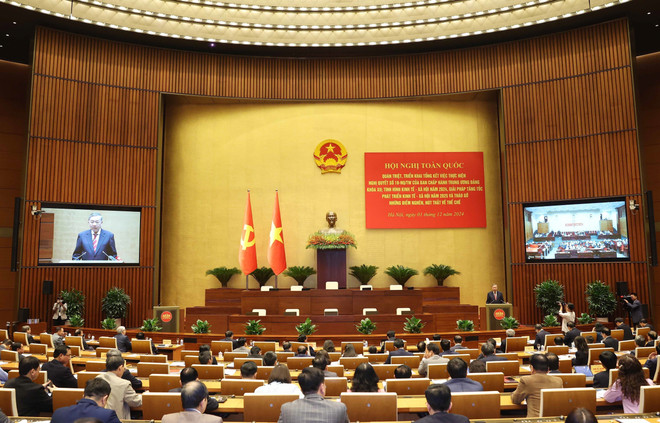
Hanoi (VNA) - Streamlining the state apparatus is both an urgent necessity and a natural progression for Vietnam to advance in the new era, solidifying its position in the region and the world. This is the view shared by domestic and international experts regarding Vietnam’s commitment to reforming its organisational structure.
“Vietnam has been going through organisational reform to deal with the evolving challenges associated with its stage of development. This is not an aberration but a natural step in improving governance and producing higher quality services,” said Stephen Nagy, Director of Policy Studies for the Yokosuka Council of Asia-Pacific Studies (YCAPS).
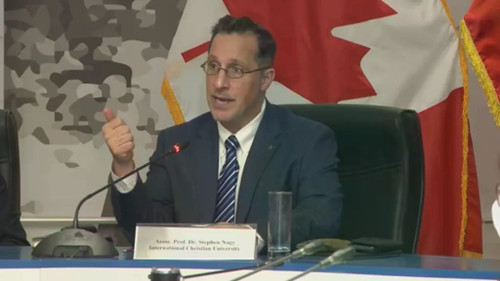
Since the 12th Central Committee of the Communist Party of Vietnam adopted Resolution No. 18 in October 2017, aimed at reforming and restructuring the political system for greater efficiency and effectiveness, Vietnam has made remarkable efforts to streamline its political apparatus. While notable progress has been achieved, the restructuring process remains inconsistent, overlapping, and multilayered, leading to risks of corruption, wastefulness, and other negative phenomena.
According to Party General Secretary To Lam, despite the significant changes the country has undergone over the past 40 years of implementing Doi Moi (reform) policies, the restructuring of the political system mainly follows outdated models, with many issues no longer aligned with current conditions and developmental trends. As a result, reforming and restructuring the state apparatus is crucial for Vietnam to make breakthroughs in the new era.
The Party chief emphasised that streamlining the state apparatus is not merely about reducing its size but also about enhancing the quality and efficiency of its operations. Acknowledging the challenge as "difficult, even very difficult," he stressed that it "must be done" as it aligns closely with the nation’s aspirations in the new era. These aspirations include transforming Vietnam into a developing country with modern industry and upper-middle income by 2030 and a developed socialist country with high income by 2045.
Some experts commented that Vietnam has achieved a high consensus in streamlining the state apparatus, which is a key factor in determining the success of organisational reforms.
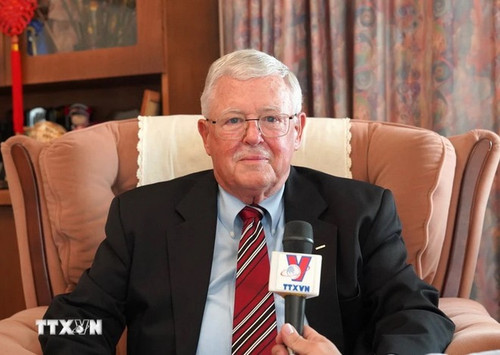
Emeritus Professor Carl Thayer, from the Australian Defense Force Academy at the University of New South Wales, said Party General Secertary To Lam secured the agreement of the Politburo and the Central Committee of the Communist Party of Vietnam to streamline the apparatus of the Party and state from top to bottom, with the process scheduled for completion by the end of the first quarter of 2025.
“It is clear that there is a strong political will to carry out these reforms,” Thayer said.
According to the Ministry of Home Affairs, the Vietnamese government is undergoing significant restructuring, with plans to reduce the number of ministries to 13 and agencies at the same level to four. This includes cutting five ministries, three government agencies, and eliminating 12 out of 13 general departments and similar organisations.
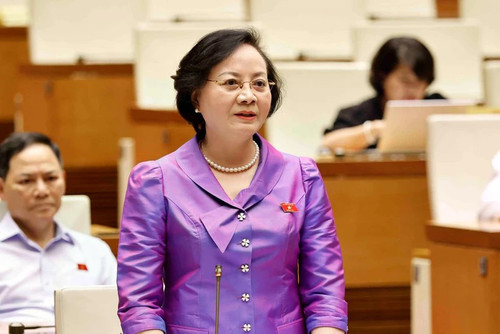
Additionally, 677 departments and equivalents within ministries and agencies, as well as 190 public service units, will be reduced, surpassing the government’s original targets. After the restructuring and consolidation, the number of organisations within the government will decrease by 35-40 percent, while the remaining will undergo further restructuring to reduce at least 15 percent.
“These figures are significant, reflecting the determination of the entire political system,” Minister of Home Affairs Pham Thi Thanh Tra told the Vietnam News Agency.
Sharing the same view with Professor Thayer, Dr. Nguyen Khac Giang, expert from the Institute of Southeast Asian Studies (ISEAS - Yusof Ishak) in Singapore, said with high political determination and strong reform mindset, Vietnam continues to carry out the institutional reform in the spirit of “running and queing at the same time” - a metaphor of General Secretary To Lam to emphasise the urgency and deciveness in the implementation process.
“Vietnam will draw practical lessons during the process of streamlining the apparatus to adjust and address shortcomings, rather than waiting for perfection before starting. This proactive mindset helps prevent the apparatus from oversizing and wasting resources,” Giang said.
According to Dr. Nguyen Khac Giang, this is the “right time” for Vietnam to carry out an institutional revolution, as the country now possesses the necessary resources to achieve breakthroughs in the new era. This includes the country’s increasingly high diplomatic position in the global arena, outstanding economic development, and the advantage of the golden population period.
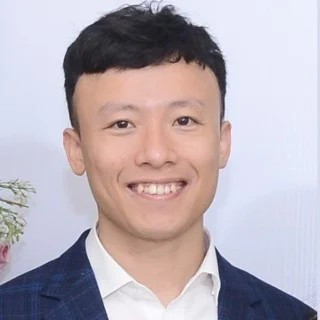
In terms of diplomacy, as of November 2024, Vietnam established a comprehensive strategic partnership with nine countries, namely China, Russia, India, the Republic of Korea, the US, Japan, Australia, France and Malaysia.
Economically, after nearly 40 years of reform, Vietnam’s economic size reached 430 billion USD in 2023, placing it among the 40 largest economies in the world and the top 5 economies in the Association of Southeast Asian Nations (ASEAN).
The country’s per capita GDP has reached nearly 4,300 USD, and the multidimensional poverty rate has dropped to just 2.9 percent.
Notably, Vietnam boasts economic and trade relations with 230 countries and territories. The country has engaged in over 500 bilateral and multilateral agreements, including 17 free trade agreements (FTAs).
Furthermore, Vietnam is currently in the period of golden population structure - a period when the proportion of the working-age population (15-64 years old) is higher than the dependent population (under 15 years old and over 64 years old).
According to the General Statistics Office, Vietnam’s golden population structure will last until 2041. This is an opportunity for Vietnam to promote economic and social development.
“All of the above advantages are a complete springboard for Vietnam to break through to a new stage with more remarkable achievements,” Giang said.
From a business perspective, Csaba Bundik, former director of EuroCham Vietnam, shared his expectation that the streamlining of the state apparatus in Vietnam will be carried out swiftly and effectively.
“If administrative procedures can be simplified and handled efficiently, it will allow businesses to focus on their core activities, such as developing production, services, and attracting customers,” Csaba said.
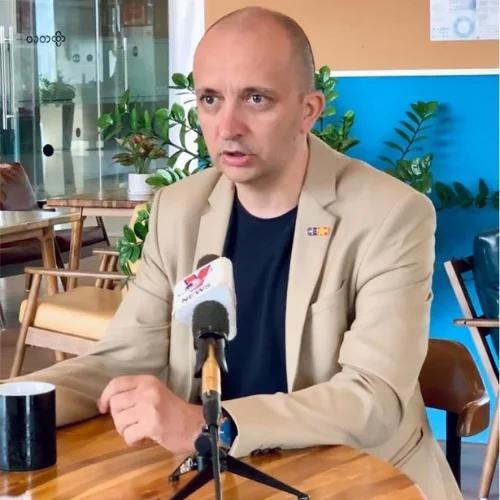
EuroCham’s former director also said a streamlined and efficient state apparatus will help Vietnam free up resources for investments that bring practical benefits to the Vietnamese citizens.
In Vietnam, the state budget currently allocates about 70 percent to monthly salary payments. “A streamlined apparatus will enable Vietnam to focus on investment in such crucial areas as education, healthcare, social welfare, and infrastructure development,” he said.
Acknowledging Vietnam’s efforts and determination in streamlining the state apparatus, experts held that implementing changes within a large system is always a challenge. Therefore, this process must be carried out objectively, transparently, and fairly.
“Listening to and consulting with the people is extremely important to create a truly democratic environment and help Vietnamese leaders formulate policies that align with the needs and aspirations of the people,” Nagy said./.
